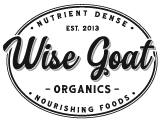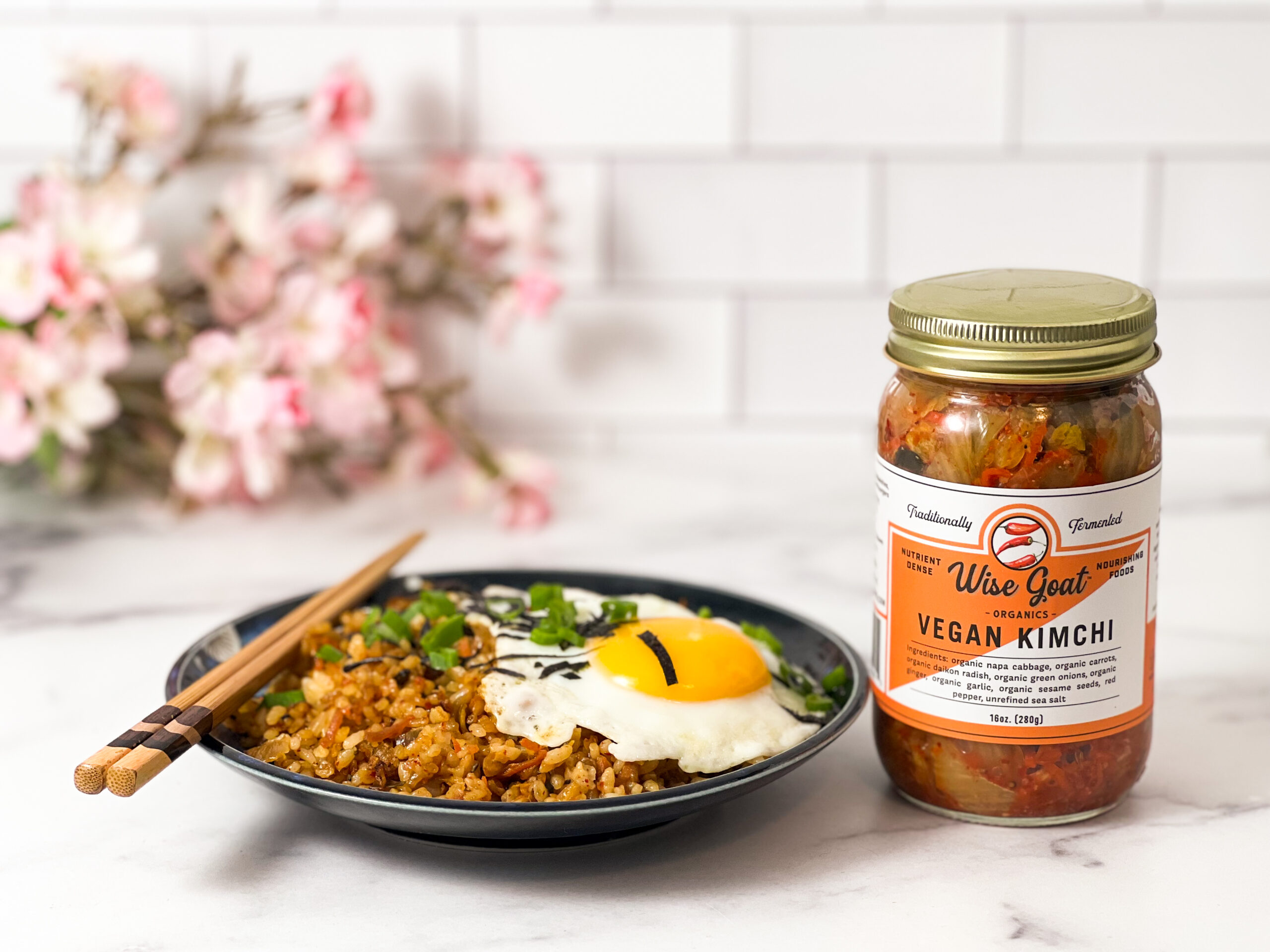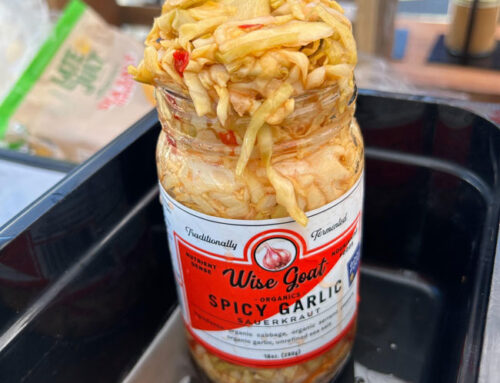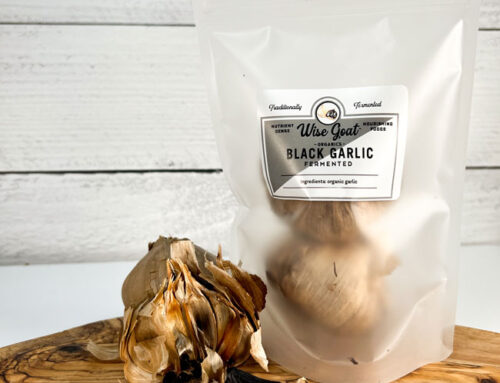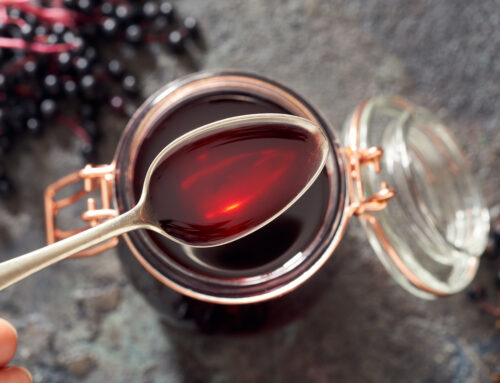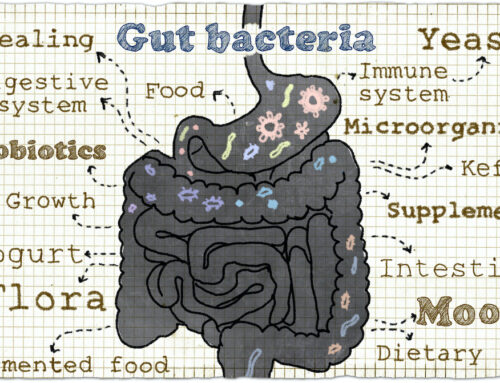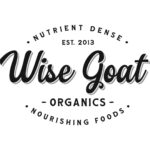Our Vegan Kimchi is one of our most popular ferments, and also one we get asked about quite a bit. Isn’t all kimchi vegan? Surprising to many, the answer is no.
There are over a hundred different kimchi variations across Korea, kimchi’s homeland, which include a variety of ingredients due to region, season, accessibility, and taste. The kimchi style that is recognizable worldwide, however, is baechu kimchi. Baechu translates to “napa cabbage kimchi,” and traditionally consists of napa cabbage, salt, garlic, ginger, scallions, fish sauce or seafood, and gochugaru (Korean chili flake). It’s known for its vibrant red color, funky smell, and spicy, complex flavors. This medley has been lacto-fermented for millennia, beginning as small batches preserved in handmade clay pots and traveling all the way through time to the industrialization era of mass production.
Over the past century, kimchi has emerged as a cultural icon of Korea. As Korea’s national food, kimchi is a source of immense pride and shared identity which transcends age, class, or regional differences. In fact, there is an annual tradition-turned-holiday, Kimjang, which is celebrated in families and communities by making big batches of kimchi to last each household through the winter. Kimjang is seen as a bonding event, and symbolizes the unity of humans with nature, as ingredients are gathered throughout each season leading up.
We strive to keep the spirit of baechu kimchi alive by sourcing certified organic vegetables as locally as possible, and fermenting small batches of our Vegan Kimchi using the traditional and natural method of “wild fermentation.” Wild fermentation uses salt as a catalyst, allowing the microorganisms already present in the vegetables to proliferate instead of using a starter culture, or innoculating our ferments with specific strains. The beauty of wild fermentation is that there will be a much greater diversity of microbacteria within the trillions of live cultures present – which introduces our immune system to an infinitely broader microcosm of life, and thus makes us less susceptible to illness, inflammation, and auto-immune dysfunction.
Our Vegan Kimchi is as delicious as it is straightforward: there are no additional preservatives, refined sugars, MSG, gluten, starches, or dyes. It is a raw, live culture food. Our decision to make it vegan and junk-free comes from the desire to create products that are more accessible across the span of dietary consciousness, and keep it as rooted to the soil as possible. We use a dynamic mixture of functional foods, including ginger, daikon radish, arame seaweed, to name a few, that are packed with nutrients and beneficial health properties.
Vegan Kimchi benefits:
- Our Vegan Kimchi is a deliciously effective prebiotic & probiotic! Probiotics are the trillions of live microorganisms that help to maintain the balance in our gut. Prebiotics come from the high fiber content and are what helps to feed the microorganisms.
- Traditional fermentation practices introduce a wider variety of microorganisms to our bodies than conventional inoculation methods, offering higher immunity building properties.
- Certified organic ingredients ensure that our kimchi is only offering your body the healthiest natural foods, without any potentially harmful pesticides or chemical exposure.
- Choosing organic foods also supports the organic movement that the Earth so desperately needs – chemical-free is supporting nature, the bees, essential nutrients found in our soil, and the future of food for our children and generations to come.
- Extremely high in vitamins and minerals that help with blood cell production, circulation, and our pulmonary system overall! Here’s just some:
- Vitamin C: boosts immunity, white blood cell production
- Vitamin B6: our bodies can’t produce this naturally, so it’s important to consume via food! B6 builds red blood cells and reduces chronic disease.
- Vitamin B9: helps circulation system, heart health
- Vitamin K: helps bone metabolism
- Copper: facilitates nerve development
- Iron: red blood cell health, crucial for oxygen delivery throughout the body
- Calcium: another mineral our bodies need and don’t produce – for bone and muscle health
- Manganese: fights free radicals and cellular damage
- TONS of antioxidants!
- Great source of soluble and insoluble dietary fibers, both of which are necessary for our digestive tracts to be operating smoothly!

